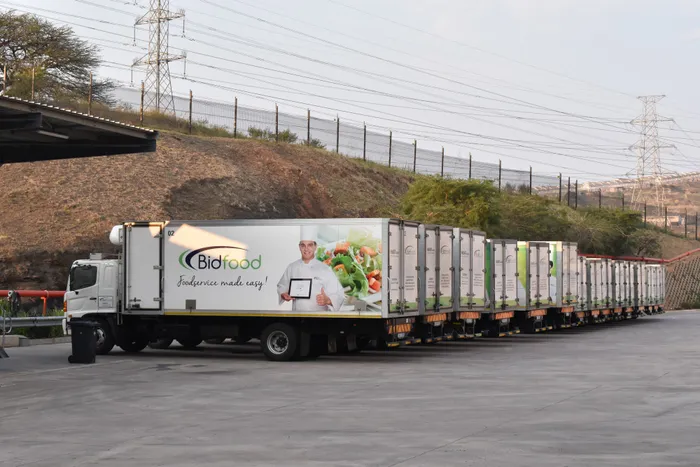
Bidfood, a unit of Bidcorp.CEO Bernard Berson said Bidcorp demonstrated resilience in the global food service market in the year to June 30, 2025, with a 9.6% increase in headline earnings per share despite challenging economic conditions.
Image: Supplied
Bidcorp produced another solid performance from its global food service and technology in the year to June 30 and headline earnings per share (HEPS) increased by 9.6% to 2,635.8 cents per share.
CEO Bernard Berson said he was “very happy” with the results as most global consumer spending markets were generally lacklustre. Revenue grew 6.8% in constant currency, and after adjusting for bolt-on acquisitions and food-basket inflation, the top line grew by 4.5%.
Some 94% of the revenue base is outside of South Africa, so constant currency measures are the truer reflection of actual performance. In rand-translated results, HEPS grew by 6.5% to 2 562.7 cents per share, reflecting the impact of the stronger rand.
Group trading profit increased by 6.4% to R12.9 billion and 9.3% in constant currency. Basic earnings per share (EPS) increased by 1.8% to 2435.3 cents per share, primarily due to the non-cash losses incurred in the exit of the German operation.
Bidcorp’s European businesses delivered double-digit growth in revenues and trading profits in home currencies despite difficult macro conditions. Other than Portugal, which was in an investment phase, all businesses delivered a stronger result.
The UK delivered an improved performance and also benefitted from an acquisition. Emerging Markets was buoyed by an “excellent performance” from the South African businesses.
Berson said in an interview that the South African business benefited primarily from an excellent, stable team and a mature business that executes very well in their business, every year.
However, Greater China remained subdued due to the macro environment, and Singapore was emerging from its realignment. Berson said in China, the group primarily was an importer of high-quality Western-style food, and not only was it a “tough” market economically, but food tastes had recently changed to become more inwardly focused.
Both Australia and New Zealand delivered "very satisfactory" trading performances, considering the weaker macro conditions in each country.
Activity levels in the first quarter were impacted by unseasonably cold and wet September weather in the northern hemisphere, coupled with extreme weather-related flooding in Eastern Europe.
There was an improvement into the second quarter and the festive season. The third quarter was flattish largely due to the timing of the Easter holidays, but activity rebounded into the fourth quarter.
Food inflation had no real impact until late in the year, although cost inflation remains sticky, driven by ongoing wage pressures and higher supply chain costs. Customers remained price-sensitive, and competition was robust. Investment activity, primarily in new distribution capacity, continued.
Generally, food inflation appeared to be resuming normal inflationary growth patterns after a period of zero to little growth, said Berson.
Twelve food service bolt-on opportunities were converted in the year. The acquisitions contributed R5.3bn to revenue and R459m to trading profit. Berson said for the group, the full value of the acquisitions lay in their compounding contribution to the group over the medium term.
Pier 7, Germany was disposed of from December 31. Up to disposal, Pier 7 contributed R657.5m to revenue but had a trading loss of R10.9m.
A final cash dividend of 600 cents per share was declared for the year ended June 30, 2025, an increase of 6.2%.
“We believe in each business’s autonomy and manage them independently. However, we encourage cooperation and sharing of ideas and learnings, with the aim of maximising the benefit of our global scale, experience, expertise, and combined intellectual property,” said Berson.
Activity levels through July and August were encouraging considering that the weather in the northern hemisphere, which plays an important part in driving consumer spending and activity levels, had been less than ideal.
In Australia, activity was expected to slowly improve, while in New Zealand, recessionary conditions were abating. While UK activity remained lacklustre, the business was on a path to margin recovery. The Emerging Markets businesses were anticipating growth.
“Although consumer conditions are not expected to materially improve into the 2026 financial year, we will continue to focus on those factors that we can control and adapt and maximise the opportunities which inevitably arise. We are budgeting to continue to deliver real growth in the year ahead,” he said.
BUSINESS REPORT